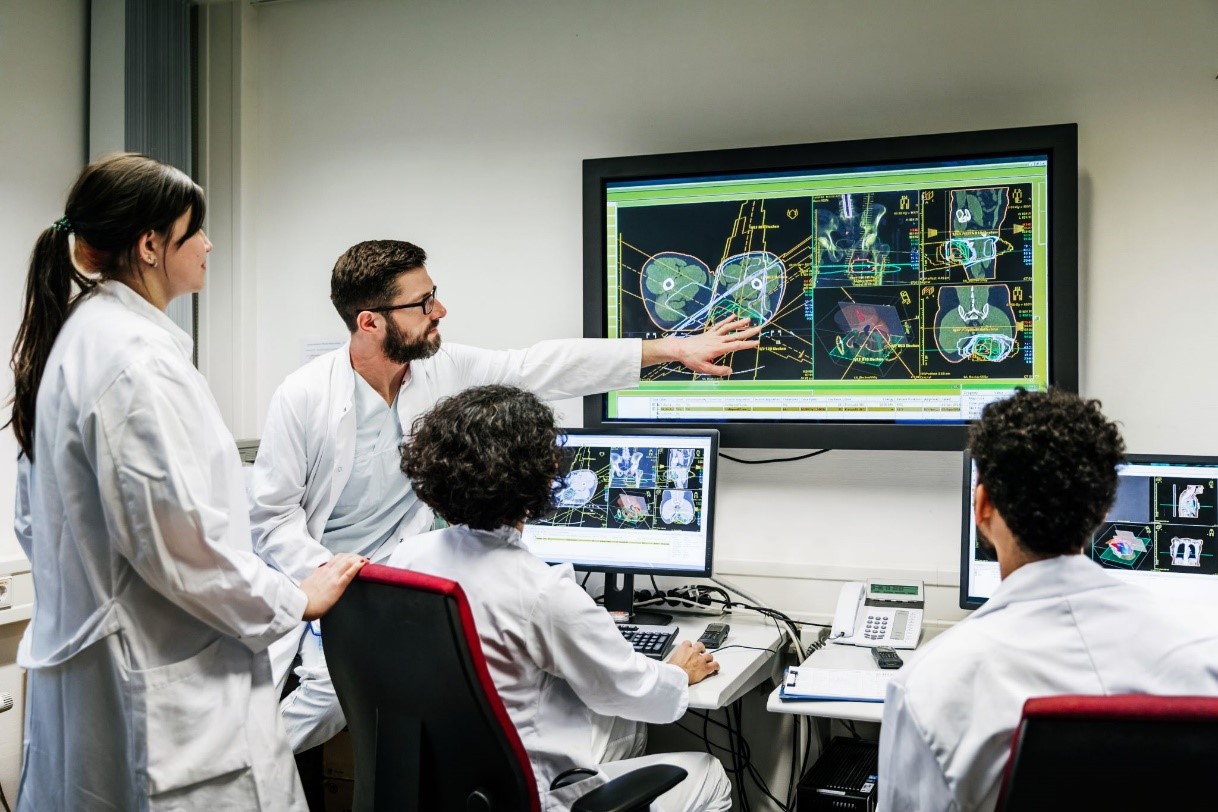
Savonia Article: Digital competence in healthcare
#SavoniaUAS
Digitalization and the use of digital services have changed the healthcare sector in recent years. The change can be seen as versatile and flexible healthcare services made possible by digitalization. For healthcare professionals, the change can be seen especially in the form of new competence requirements and their impact on the professional’s work.
Digital skills as part of daily work
Healthcare professionals need new skills for the versatile management of digital methods and processes. The skills needed are, for example, information utilization and critical evaluation of information, but also communication and collaboration between clients and multi-professional teams. Remote appointments, digital care paths, and the transmission of information through various platforms and communication channels are standard methods of operation in healthcare settings.
A digitally competent professional should also have strong professional expertise. This means customer-oriented working skills and skills to apply expertise when working with a patient in a digital environment. An essential part of the work is identifying suitable services and marketing these services to the patient. Also, guiding these services’ use is essential, regardless of whether the services are implemented by using traditional face-to-face appointments or digitally. Digital competence also includes critical thinking, problem-solving ability, and constant attention to digital security. In addition, understanding the general principles, basic functions and purposes of digital technology is part of digital competence. Digital competence includes a reflective, critical, and curious open-minded attitude, but also a perspective that considers ethics and responsibility.
Digitalization’s effects to the work environment
A digitally competent professional naturally works in increasingly digital environments. For example, the care relationship can be continued and implemented outside of face-to-face appointments. The professional, therefore, spend more time in the digital work environment planning and implementing patient care. The effect on the care relationship can be positive when the professional manages skillfully the digital setting. On the other hand, the effect can be negative if the professional lacks digital competence. This, in turn, has an impact on the quality of the patient’s care and the care relationship. In any case, digitalization enables an increase in the patient’s own involvement. The professional should know how to utilize this, but it also requires a critical evaluation of information produced by the patient.

The professional’s digital competence has positive effects on the implementation of patient care. This can be shown as more efficiency in the production of services. However, professionals must first accept the impact of digitalization on work tasks and their changing role as digitally competent health and social care professionals. Digital operations and the demands on competence can cause negative feelings and thoughts if there are deficiencies in the usability of the digital work tools or the professional’s skills. Digitalization and digital health services should be taken into consideration when planning the education and maintenance of digital competence. In addition, healthcare professionals need more time and possibilities to participate in the development of processes of digital health services. The usability of services can be improved from both the patient’s and the professional’s point of view with the help of digitally competent healthcare professionals.
Today, healthcare professionals cannot avoid the demands and effects of digitalization. The same situation is of course in almost all industries, as well as in the everyday life of citizens. The basic tasks of healthcare are related to patient care, so digitalization must offer usable tools and bring added value to the implementation of these tasks and to the work of professionals. Only in this way will digitalization reach its place as part of a functional and productive healthcare environment.
This article is based on Master’s Thesis of Veera Rajalampi and Satu Sorila. References of this narrative literature review are available from authors. See also https://urn.fi/URN:NBN:fi:amk-2023051510785
Authors:
Veera Rajalampi, Graduated Student in Master’s Degree Programme in Digital Health, Savonia University of Applied Sciences
Satu Sorila, Student of Master’s Degree Programme in Digital Health, Savonia University of Applied Sciences
Liisa Klemola, PhD, Senior Lecturer, Master’s Degree Programme in Digital Health, Savonia University of Applied Sciences, Unit of Continuous Learning, Master School
Elisa Snicker, CBC, MSc (Econ and Bus Admin), MSc (Health Sci.), Lecturer, Savonia University of Applied Sciences, Unit of Continuous Learning, Master School
Images are from the Word image bank.